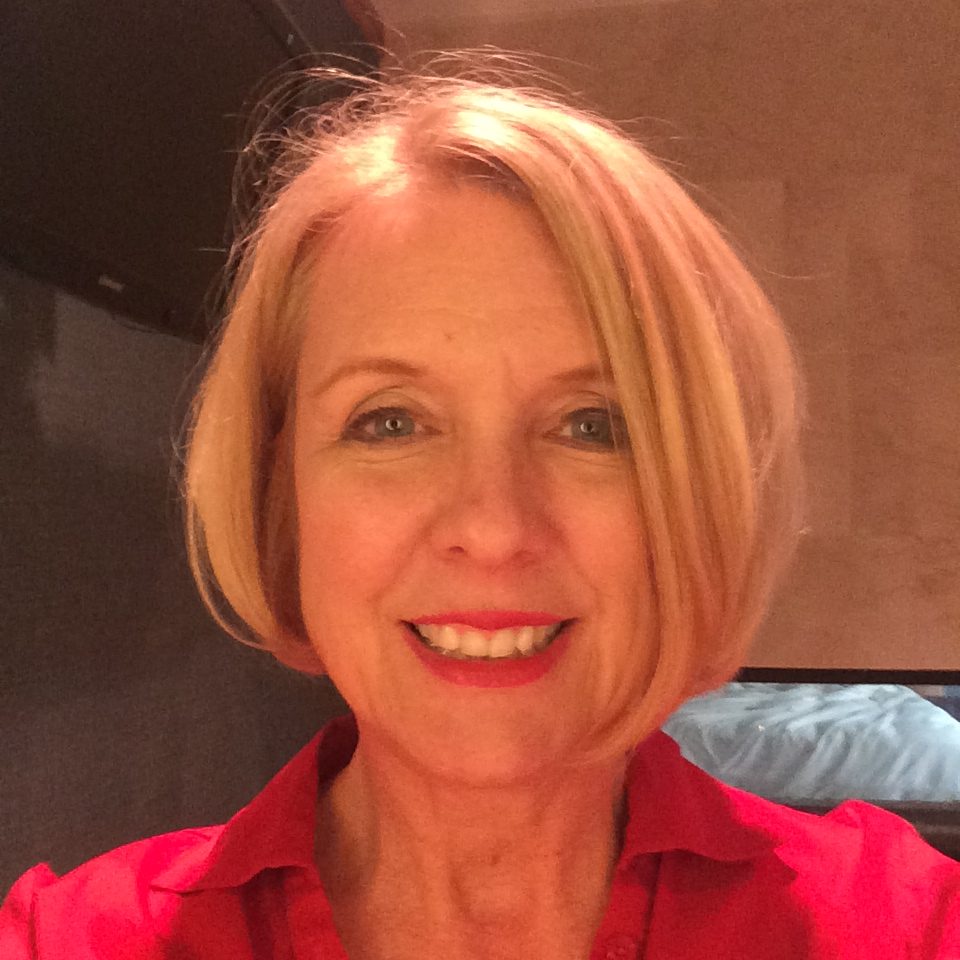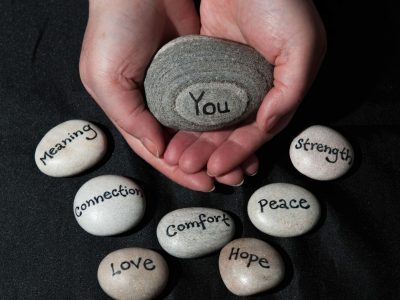This is part 1 in our series on spirituality and aging. Read part 2 here.
For many years, the Catholic faith was central to Debra Cook’s life. She grew up in a Catholic family, sent her children to Catholic schools and was an active leader in her parish.
But now Cook, 65, of Dallas, finds herself looking beyond the walls of her church as she gets older. In recent years, her parish shifted toward a more conservative understanding of Catholicism; meanwhile, Cook’s beliefs have become increasingly more expansive.
She stopped going to mass every week, a step that once would’ve been unthinkable. Instead, she spends an hour outdoors early each morning, quietly observing nature. Cook completed an ecumenical Christian formation program that prepares participants as spiritual leaders or spiritual directors. This fall, she’ll lead a study program called the Soul of Aging, which deals with issues involved with aging but offers no specific religious doctrine.
“I still view myself as a Jesus follower,” she said. “But my view of God has gotten so much bigger. I’ve realized there’s more out there that I don’t understand.”
Like Cook, many older adults say spirituality is an essential source of wisdom and guidance that not only helps them to cope with the challenges of aging but also to live more consciously, with a sense of wholeness and purpose.
“Older people want meaning,” said Michael Gurian, author of The Wonder of Aging: A New Approach to Embracing Life After Fifty (2013). As people live longer lives, “we have the freedom now, in a miraculous second lifetime, to soul-search and soul-find.”
Spirituality, he adds, can help people cultivate the “realistic optimism” that will help them better navigate later life.
Spiritual but Not Religious
The assumption that people become more religious as they age and confront their mortality is generally regarded as a myth among professionals who work with older adults, according to Holly Nelson-Becker, author of Spirituality, Religion and Aging: Illuminations for Therapeutic Practice (2018). Similarly, there’s no research that suggests an overall trend of people becoming more spiritual as they age. Older adults do represent the most religious demographic group in the United States, but Nelson-Becker suspects that’s because members of the older generations grew up when it was more common for people to participate in an organized religion.
“What we do know is that people’s religious and spiritual trajectories change over time in many ways,” Nelson-Becker said. “People get enthusiastic, motivated, discouraged, and become more spiritual, more religious, less so, and otherwise in and out.”
Some, like Cook, find themselves veering away from religion and into a growing segment of the population that demographers call the “SBNRs”—spiritual, but not religious. Defining exactly what that means, however, has posed a challenge.
‘Spirituality’ means different things to different people.
“Religion includes ethical principles, rituals, beliefs and practices, transmitted over time and shared by a community,” said Nelson-Becker. “The definitions of spirituality vary far more widely. Spirituality is a somewhat fuzzy concept that means different things to different people.”
Nelson-Becker was part of an interdisciplinary team of 50 experts that developed standards of spiritual care in palliative care. They hammered out this definition: “Spirituality is the aspect of humanity that refers to the way individuals seek and express meaning and purpose and the way they experience their connectedness to the moment, to self, to others, to nature, and to the significant or sacred.”
Life Changes Spur Shifts
Many who embrace spirituality later in life say they were spurred at least in part by changes in their life circumstances. After retirement, or a shift to part-time work, or fewer family responsibilities, they have more time for reflection.
“When you’re in your 30s, it’s all about go, go, go and get, get, get,” said Debby Thomas, 67, a real estate agent in Garland, TX. “Once you get older, those are not necessarily your top priorities.”
Thomas grew up in a Protestant church and converted to Judaism when she married in her 20s. When her marriage ended, she fell away from religion entirely. In her mid-50s, she discovered Unity Church of Dallas, a New Thought church that prescribes no doctrine but views Christian teachings as a practical path to health and happiness.
Thomas believes that maturity makes her more accepting and open to new ways of expressing her spiritual beliefs.
“When I was young, I was too busy arguing with [the church’s] dogma,” she said. “When you get older, you make it more personal, rather than trying to change the world to match your beliefs.”
Foundation for Living Longer and Healthier
One nationwide study of more than 1,000 obituaries found that people with religious affiliations lived nearly four years longer than those with no ties to religion, even after adjusting for other factors, such as gender and marital status. But researchers caution that it’s virtually impossible to separate the benefits of religion from related factors, such as the social connections among people in faith communities.
Anne Sadovsky, 77, is clear that the social and the spiritual, together, have enriched her life. A motivational speaker and real estate expert in Dallas, she’s benefited from the social support of “the Dalai Mamas,” a prayer circle of seven older women, ages 62-78, that’s been together for more than 10 years.
The women meet for birthdays and holidays, but the glue that bonds them is prayer. Via email, they share prayer requests for themselves and others. Often, they will schedule a time when they all pray at once, wherever they are, for a specific need. Originally the women met at Unity Church of Dallas, where Sadovsky is a member, but the group stayed together even after some moved to other churches.
“When the husband of one of the women died, we were all right there,” Sadovsky said. “I had major back surgery, and they were there for me. One stayed with me at the rehab facility and gave me my first shower after surgery.”
Each woman prays according to her own understanding, Sadvosky said, but following Unity principles, they don’t see prayer as “begging or pleading” so much as a way to connect with divine energy.
“It’s a very powerful, loving support group,” she said. “Word has spread that our prayers are powerful; people we don’t even know will [ask for prayers].”
Some spiritual practices may have health benefits. Meditation, for example, may help reduce blood pressure.
Being a part of a group like the Dalai Mamas may have a positive impact on health. While the number of studies examining the links between religion, spirituality and health is mushrooming, according to Nelson-Becker, “The findings are difficult to align because they look at different factors, control for different factors, and ask slightly different questions.” While there appears to be a correlation, there’s no proof of a cause-and-effect relationship.
Some spiritual traditions do explicitly encourage adherents to avoid unhealthy behaviors. In exploring longevity hotspots, Dan Buettner identified a community of centenarians in Loma Linda, CA, in his book, The Blue Zones: Lessons for Living Longer From the People Who’ve Lived the Longest (2008). Many were Seventh Day Adventists, who don’t smoke, follow a plant-based diet, exercise regularly and maintain a normal body weight.
Research also suggests that some specific spiritual practices, such as yoga, and meditation or prayer, may have health benefits. Meditation, for example, may help reduce blood pressure or relieve some menopausal symptoms, like hot flashes.
The Wonder of Aging author Gurian, 65, spends an hour each morning meditating in nature. He’s a practicing Jew but has lived around the world, and his spirituality draws on elements of many other religions, including Baha’i, Hinduism, Unitarianism and Christianity.
“I think genuine happiness can come from having a spiritual practice,” he said. “As mind and body connect, that helps some people to end an addiction or to eat more healthfully. Also, there is something happening in the brain as people do spiritual practices. Spiritual practices direct more blood toward the temporal lobe, and that is good for de-stressing.”
Art as Spiritual Practice
Spiritual expression can range from communal activities like worship, scripture study or prayer, to personal practices such as journaling, meditating or spending time in nature.
For Donna Bearden, 71, her spiritual practice centers on art and learning. She’s married to a retired United Methodist pastor but describes herself as spiritual but not religious.
“My spirituality could not develop within the church,” she said. “I believe a spiritual journey has to involve doubt, searching, asking hard questions. I couldn’t ask those questions without raising eyebrows.”
Bearden expresses her spirituality through art, writing and photography. She starts each morning writing in a journal and often heads outside with camera in hand. She’s fascinated by mandalas—a circular symbol in Hinduism and Buddhism that represents the universe—and creates them with the photos she’s taken.
“There is a zone artists and poets and other creatives talk about, the idea that words or an artist’s creation comes not from them but through them,” she said. “I have felt that zone, that connection to something greater than I.”
A Sense of Purpose
If there’s a link between spirituality and longevity, it might be ikigai (“what makes one’s life meaningful”), a Japanese term that Buettner cites in his work. Many faiths teach concepts of intrinsic human purpose that don’t require a youthful body or a sharp intellect: tikkun olam, the Jewish calling to repair the world; the Christian teaching of serving others; or the Buddhist idea of the bodhisattva, a person who chooses to strive for Buddhahood for the benefit of all sentient beings. Spiritual practices, such as meditation, can help people clarify and focus on their sense of higher calling.
Spirituality can also help older people turn outward when loss or physical limitations could easily spur them to turn inward, according to Missy Buchanan, author of Living with Purpose in a Worn-Out Body: Spiritual Encouragement for Older Adults (2008).
“It’s the belief that ‘I’m here for a reason,’” Buchanan said. “Maybe I hurt today, but I can still do something good for somebody.”
For Cook, her work as a spiritual group leader provides a new sense of purpose and direction. In earlier years, she focused on career, raising kids, status and money—her family once lived in an 8,400 square foot home (“Isn’t that ridiculous?” she said). Those things don’t define her anymore.
“Now it’s about living a life in accord with who I was created to be,” she said. “The work I’m doing in spirituality is life-giving.”

Freelance writer Mary Jacobs lives in Plano, TX, and covers health and fitness, spirituality, and issues relating to older adults. She writes for the Dallas Morning News, the Senior Voice, Religion News Service and other publications; her work has been honored by the Religion Communicators Council, the Associated Church Press and the American Association of Orthopaedic Surgeons. Visit www.MaryJacobs.com for more.



